QuestionHi Ron,
I spoke to you recently about my fish, you may or may not remember. I have a jewel cichlid (kingsley) in a 20 gallon tank. The tank is heavily scaped with driftwood and fake plants (decided to go with fake ones so that they don't eat them). This weekend i went out and decided to buy him some new freinds as he seemed quite lonely. Unfortunately he isn't as welcoming as i'd hoped he'd be. I now have a benga cichlid, an angora cichlid and a sailfin pleco. He leaves the pleco alone but tends to bully both the cichlids. As a result the benga gets frustrated and attacks the angora too.
I spoke with the owner of the store I bought them at. She told me to put the jewel in "time out" in a seperate container to teach him that such behavior is unnacceptable, increasing the length of time outs as his aggression continues. During these timeouts the benga stops picking on the angora so I know that the jewel is fueling this cycle. I also read online that lowering the temperature will make him less aggressive, I just did that but have yet to put him back in the tank so I've not been able to see if this works yet.
Are there any other methods to decrease aggression in the tank? There are plenty of places to hide but he is such a bully that he'll chase them anywhere they go. I really don't want to come home one night and find a severed fish corpse.
AnswerHi Matthew,
The only way to reduce aggression (short of doing the time-out and/or actually removing a fish) is to add more structure. I can't tell exactly how much structure you have -- one person's "Lots" is another person's "little". There is a difference between hiding places and lots of structure. A hiding place is a place where a fish can go if it is in trouble. Lots of structure means that one fish literally cannot see another fish in the tank, if they are in different "sections" of the tank, i.e., areas divided by structure.
-- Ron
rcoleman@cichlidresearch.com
Cichlid Research Home Page <http://cichlidresearch.com>

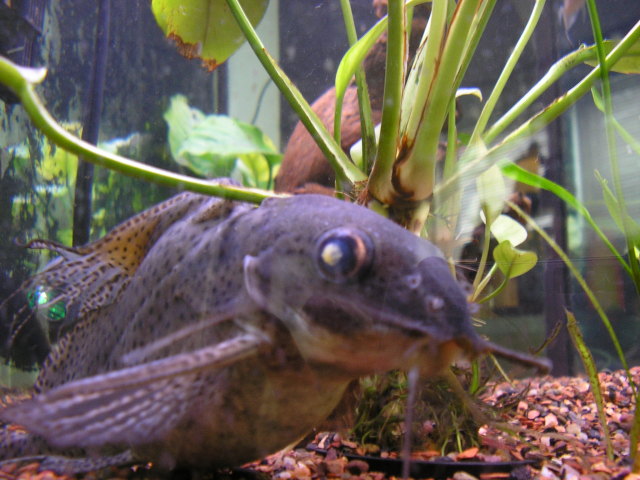 eye problem in black lace cat fish
QuestionQUESTION: This fish has what looks like yellowi
eye problem in black lace cat fish
QuestionQUESTION: This fish has what looks like yellowi
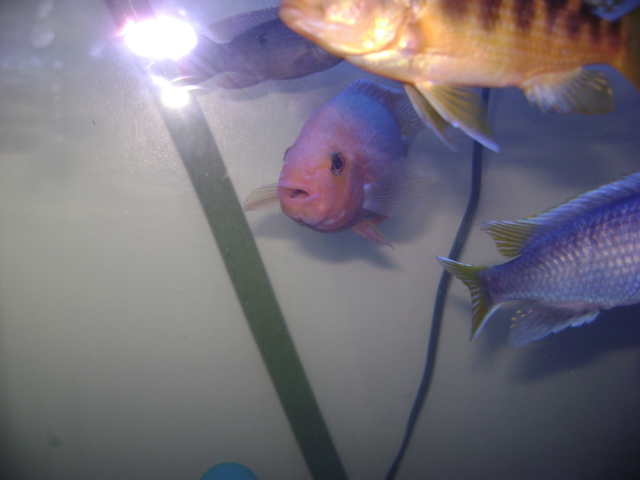 Red Devil ate plastic
Question
Hes the red one in th
Hi Ron I really h
Red Devil ate plastic
Question
Hes the red one in th
Hi Ron I really h
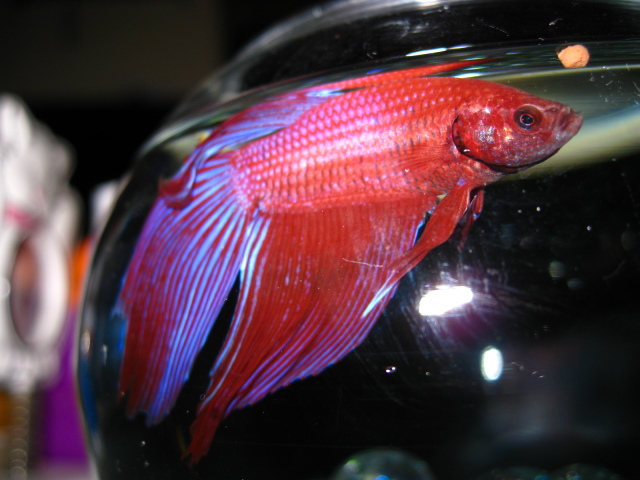 Betta Fish wont eat.
QuestionPeso
QUESTION: On March 4th, a friend ga
Betta Fish wont eat.
QuestionPeso
QUESTION: On March 4th, a friend ga
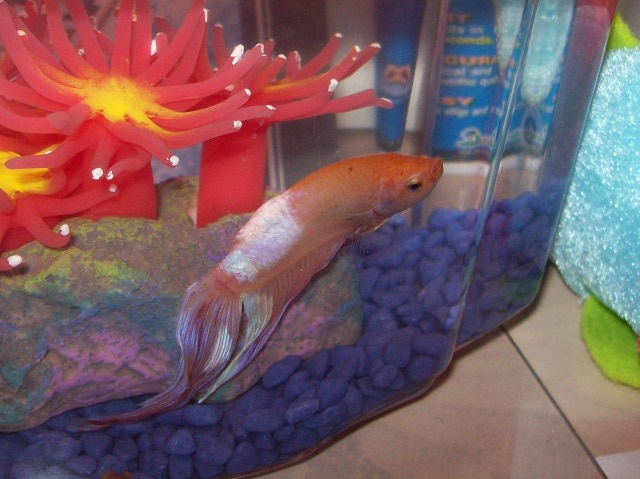 Is this skin cancer?
Question
sick fish
I have 4 betta fish and three
Is this skin cancer?
Question
sick fish
I have 4 betta fish and three
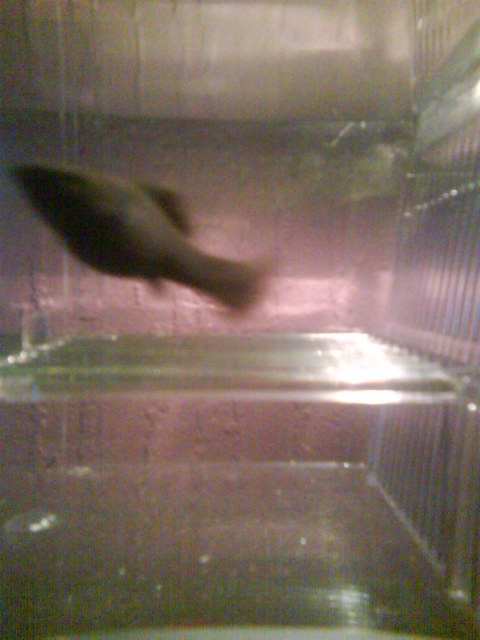 Baby Mollies
QuestionFemale Mollie
QUESTION: Hello Ron
i bou
Baby Mollies
QuestionFemale Mollie
QUESTION: Hello Ron
i bou